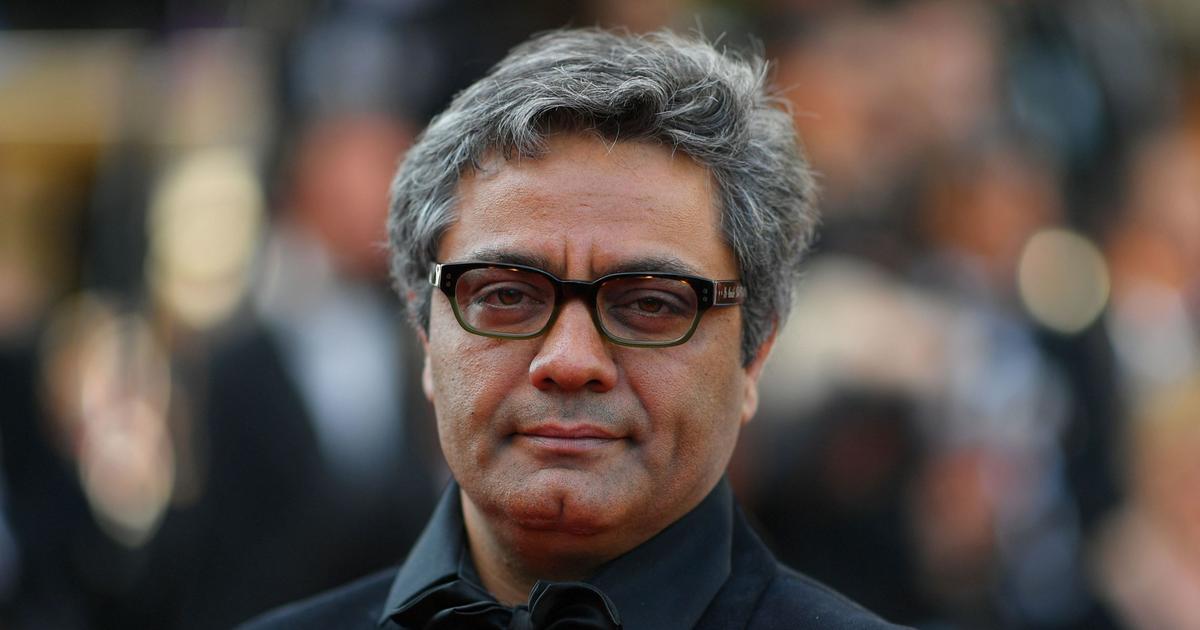In the sights of the Iranian regime, the director fled his country to escape a new prison sentence. He is among the favorites of the Cannes selection this year with Wild fig tree seeds.
A symbol for freedom of expression: Iranian filmmaker Mohammad Rasoulof comes to Cannes to defend his film in the running for the Palme d’Or in person, after having managed to clandestinely flee the Tehran regime. “When I crossed the border, I turned around, took one last look at my native land and told myself that I would return there», declared the director, invited Thursday evening on the set of the show It’s up to you.
«I didn’t want to go back to prison, he explains to Monde. I went there. I was in solitary confinement for forty days in a room the size of this sofa. Then in barely larger cells. Not physical torture – they avoid it with people who have access to the media -, but other things like not letting you go to the toilet for hours, which means that you no longer dare to eat, no longer drink… And then, I knew prisons where you are almost free to move around. I saw amazing things there.» «I think that all Iranians who had to leave due to this totalitarian regime keep a suitcase ready at home, in the hope that things will improve», he underlined during his first public appearance, alongside actress Golshifteh Farahani, exiled in France.
A great voice of Iranian cinema who has continued to defy censorship, Mohammad Rasoulof has not set foot in Cannes since 2017 and the Un Certain Regard prize for A man of integrity, film about corruption. In 2020, he was prevented from leaving Iran to receive his Golden Bear in Berlin for The devil does not exist , on the death penalty. His new film, Wild fig tree seedspromises to further disturb those in power, telling the story of an investigating judge sinking into paranoia, at a time when huge demonstrations break out in the capital Tehran.
By welcoming him in person, Cannes sends a signal “to all artists who, in the world, suffer violence and reprisals in the expression of their art», underlined the general delegate of the festival, Thierry Frémaux. And, more broadly, to opponents of the regime in place in Iran, where repression continues to increase. Amnesty International affirms that Iran, shaken by a protest movement at the end of 2022 after the death of young Mahsa Amini, executed 853 people in 2023, the highest number since 2015. Filmmakers are regularly accused of propaganda against the regime , in a country where the conservatives concentrate all the powers. A situation unlikely to change after the recent death of President Ebrahim Raïssi in a helicopter crash.
“With a heavy heart”
After defying censorship for years, Rasoulof, sentenced on appeal to eight years in prison, five of which were applicable, and who was deprived of his passport, had to resolve to flee. “I had to choose between prison and leaving Iran. With a heavy heart, I chose exile“, he explained.
His escape was clandestine, at the cost of a journey of several hours, exhausting and dangerous through the mountains to cross the border on foot. Rasoulof, who arrived safely in Germany where he found refuge, explained that he was able to keep secrets “the identities of the cast and crew, as well as plot and storyline details.» Some actors «managed to leave Iran» in time, he rejoices. But many other team members are still there.and the intelligence services put pressure on them. They underwent long interrogations. The families of some of them were summoned and threatened.»
International festivals and the sounding board they provide are an important form of recognition for Iranian filmmakers struggling with the regime, like Jafar Panahi (Taxi Tehran) or Saeed Roustaee (Leila and her brothers), regularly selected, despite the repression they suffer. A series of cinema personalities expressed their support for Mohammad Rasoulof in an open letter, including the Iranian actress who took refuge in France Zar Amir Ebrahimi and that of “Anatomy of a Fall”, Sandra Hüller, or even filmmakers like Fatih Akin , Agnieszka Holland and Laura Poitras, as well as two contenders for the 2024 Palme d’Or, Payal Kapadia and Sean Baker.
Besides The seeds of the wild fig treeGreta Gerwig’s jury also views the last of the 22 opuses in the competition on Friday, The most valuable commodityby Michel Hazanavicius (The Artist), which evokes the Shoah. The prize list is expected on Saturday.
